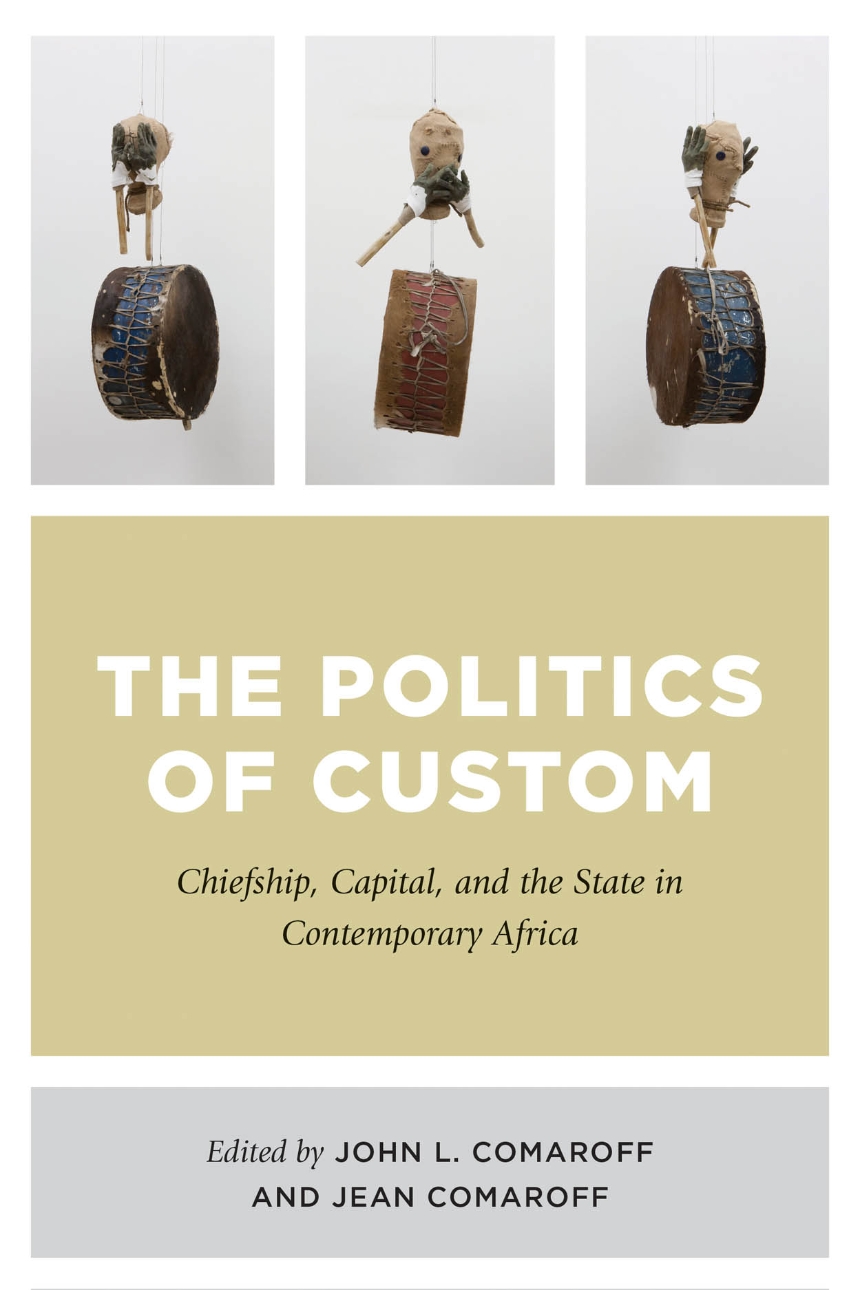The Politics of Custom
Chiefship, Capital, and the State in Contemporary Africa
9780226510934
9780226510767
9780226511092
The Politics of Custom
Chiefship, Capital, and the State in Contemporary Africa
How are we to explain the resurgence of customary chiefs in contemporary Africa? Rather than disappearing with the tide of modernity, as many expected, indigenous sovereigns are instead a rising force, often wielding substantial power and legitimacy despite major changes in the workings of the global political economy in the post–Cold War era—changes in which they are themselves deeply implicated.
This pathbreaking volume, edited by anthropologists John L. Comaroff and Jean Comaroff, explores the reasons behind the increasingly assertive politics of custom in many corners of Africa. Chiefs come in countless guises—from university professors through cosmopolitan businessmen to subsistence farmers–but, whatever else they do, they are a critical key to understanding the tenacious hold that “traditional” authority enjoys in the late modern world. Together the contributors explore this counterintuitive chapter in Africa’s history and, in so doing, place it within the broader world-making processes of the twenty-first century.
This pathbreaking volume, edited by anthropologists John L. Comaroff and Jean Comaroff, explores the reasons behind the increasingly assertive politics of custom in many corners of Africa. Chiefs come in countless guises—from university professors through cosmopolitan businessmen to subsistence farmers–but, whatever else they do, they are a critical key to understanding the tenacious hold that “traditional” authority enjoys in the late modern world. Together the contributors explore this counterintuitive chapter in Africa’s history and, in so doing, place it within the broader world-making processes of the twenty-first century.
368 pages | 3 halftones | 6 x 9 | © 2018
Anthropology: Cultural and Social Anthropology
History: African History
Reviews
Table of Contents
Editorial Note
One. Chiefs, Capital, and the State in Contemporary Africa: An Introduction
John and Jean Comaroff
Two. African Chiefs and the Post–Cold War Moment: Millennial Capitalism and the Struggle over Moral Authority
Peter Geschiere
Three. Chieftaincy, Land, and the State in Ghana and South Africa
Sara Berry
Four. The Salience of Chiefs in Postapartheid South Africa: Reflections on the Nhlapo Commission
Mbongiseni Buthelezi and Dineo Skosana
Five. The Politics of States and Chiefs in Zimbabwe
Jocelyn Alexander
Six. Paramount Chiefs, Land, and Local-National Politics in Sierra Leone
Mariane Ferme
Seven. Republic of Kings: Neotraditionalism, Aristocratic Ethos, and Authoritarianism in Burkina Faso
Benoît Beucher
Eight. Corporate Kings and South Africa’s Traditional-Industrial Complex
Susan Cook
Nine. The Currency of Chieftaincy: Corporate Branding and the Commodification of Political Authority in Ghana
Lauren Adrover
Ten. Fallen Chiefs and Sacrificial Mining in Ghana
Lauren Coyle
Eleven. Colonizing Banro: Kingship, Temporality, and Mining of Futures in the Goldfields of South Kivu, DRC
James Smith
Twelve. Third Contact: Invisibility and Recognition of the Customary in Northern Mozambique
Juan Obarrio
Acknowledgments
Contributors
Index
Contributors
Index
